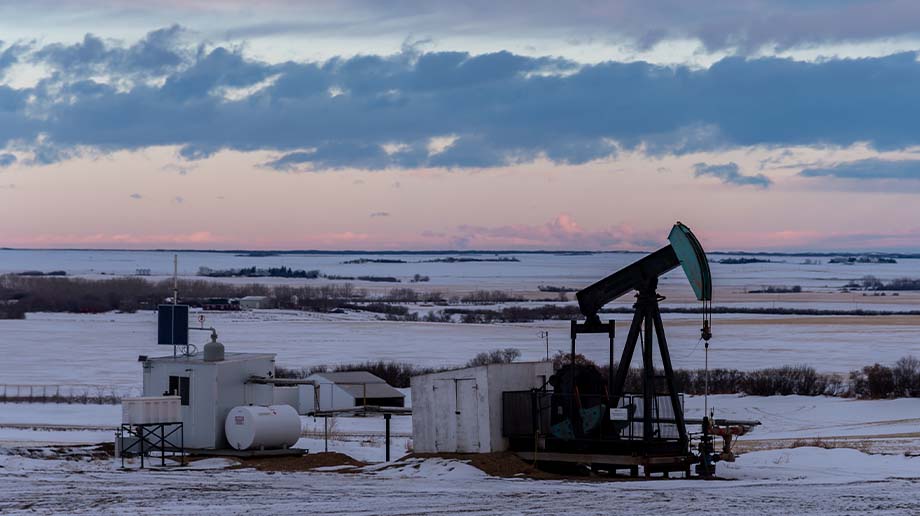
Superior Court of Pennsylvania Clarifies the Difference Between an “Exception” and a “Reservation” in the Context of an Oil and Gas Clause
In Hunnell v. Krawczewicz, 2022 PA Super 166, the Superior Court of Pennsylvania discussed the difference between an “exception” and a “reservation” of oil and gas rights in a deed. Specifically, the court evaluated whether the oil and gas language in a deed constituted an exception by the grantor of the oil and gas estate where the deed used the language of a reservation.
In 1920, W.N. and Abbie Theakston (the “Theakstons”) entered into an oil and gas lease with The Manufacturers Light & Heat Company.[1] This lease provided for a one year term commencing on June 29, 1921, and “‘as much longer as operations for Oil and Gas are being conducted on the premises.’”[2] In 1924, the Theakstons then conveyed the property to Ernest Brtko; however, this deed included multiple clauses that “excepted and reserved . . . all of the Pittsburg or river vein of coal” and “excepted and reserved . . . all minerals of whatever nature and classification may lie beneath said Pittsburgh seam of coal. . . .”[3]
Of particular importance to this dispute was the following portion of the deed:
All the oil and gas within and underlying the hereinbefore described tract of land is also reserved together with such rights to drill or operate for same as are set forth in full in lease by said W.N. Theakston et ux, lessors, to Manufacturers Light and Heat Company, lessee, dated Dec. 7, 1921, the terms of said lease demise and let “unto said lessees all the oil and gas in and under the tract of land” and also said land for the purpose and with the exclusive right of draining and operating thereon for said oil and gas, together with the right of way, and the right to use sufficient water and gas from the premises to drill and operate wells thereon, and such other rights and privileges as are necessary for conducting and operations, and the right to remove, at any time, all property placed thereon by the lessee [Emphasis added].[4]
Appellants, Ralph G. Hunnell and Florence H. Hunnell (the “Hunnells”), owned 104 acres in West Bethlehem Township, Pennsylvania.[5] In 2011, the Hunnells filed a writ of summons naming the 27 Theakston heirs, seeking to obtain a declaration of their ownership of the oil and gas rights to the subject property.[6] Subsequently, EQT filed a petition to intervene which was granted based on their assertion that they had purchased oil, gas and mineral rights from 18 of the Theakston heirs.[7] Ultimately, the Hunnells sought a declaration that the oil and gas wells on the property were abandoned, and that title of the oil and gas estate had passed to them, as surface owners.[8] EQT argued that the deed to Brtko contained an “exception” of oil and gas rights to the Theakstons; thus, the oil and gas estate was owned by the Theakston successors.[9]
In contrast, the Hunnells argued that the language in the deed constituted a “reservation” of the oil and gas estate which would pass to the surface owner at the time of Theakston’s death.[10] The trial court concluded that “the language in the Theakston Deed constituted an ‘exception’ of oil and gas rights.”[11]
On appeal, the Superior Court of Pennsylvania explained that a reservation “pertains to incorporeal things that do not exist at the time the conveyance is made”[12] while an exception “retains in the grantor the title of the thing excepted” which “demises through the grantor’s estate absent other provisions.”[13] The court provided further that “even if the term ‘reservation’ is used, if the thing or right reserved is in existence, then the language in fact constitutes an exception.”[14] When an instrument contains a “reservation,” the interest “ceases at the death of the grantor, because the thing reserved was not in existence at the time of granting and the thing reserved vests in the grantee.”[15] Ultimately, the court held that the language of the deed to Brtko indicated the Theakstons “‘were not reserving to themselves any new rights but were merely excepting from the terms of those deeds the oil and gas underlying the property, fee simple title to which was already theirs.’”[16] Accordingly, the court determined that the clause constituted an “exception” of the oil and gas rights because the oil and gas clause in the deed did not create a new right or interest.[17]
This ruling is consistent with the holdings of Silvis v. Peoples Natural Gas Co., 386 Pa. 453, 126 A.2d 706, 708 (Pa. 1956), and Ralston v. Ralston, 55 A.3d 736, both of which the superior court relied on, which similarly held that regardless of the language used, an oil and gas clause purporting to “except” or “reserve” the oil and gas rights to the grantor will be treated as an exception because the oil and gas is already in existence, and no new rights were being created.[18] This case serves as an important reminder that, in Pennsylvania, regardless of the language used, an oil and gas clause in a deed will be construed as an “exception” of oil and gas rights and not a “reservation” of those rights.
[1] Hunnell v. Krawczewicz, 2022 Pa. Super. 166 at 2.
[2] Id.
[3] Id.
[4] Id. at 3.
[5] Id. at 1.
[6] Id. at 4.
[7] Id.
[8] Id. at 5.
[9] Id.
[10] Id. at 6.
[11] Id.
[12] Id. at 10 (citing Walker v. Forcey, 396 Pa. 80, 151 A.2d 601, 606 (Pa. 1959), at 606).
[13] Id. at 11.
[14] Id. at 10.
[15] Id. at 10-11 (citing Silvis v. Peoples Natural Gas Co., 386 Pa. 453, 126 A.2d 706, 708 (Pa. 1956) at 708).
[16] Id. at 15.
[17] Id. at 20.
[18] Id. at 15-18.
Get expert legal guidance today
Contact us today to discuss your legal needs in oil, gas, and mineral development.


